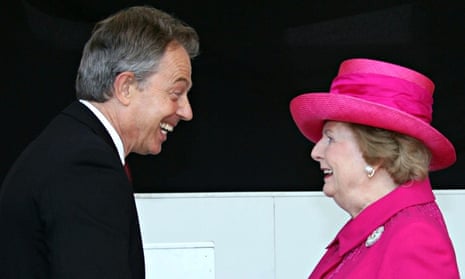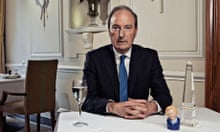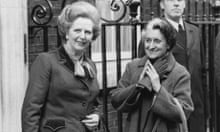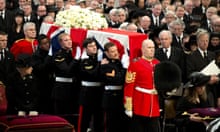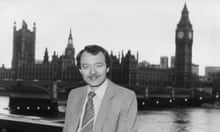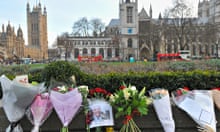Christmas Day may be over, but there is still time for a seasonal quiz. The task is to pick the person who most deserves to be celebrated in this country’s radical history. Who, in short, is your radical hero?
There is a good reason why this question is freshly topical today. It is currently being asked by the People’s History Museum in Manchester. The museum has come up with a list of 100 radical candidates, and it is now inviting supporters to “sponsor a radical”.
This exercise is no game. The museum has been hit hard by austerity. In April it will lose central government funding of £200,000. And with local authority budgets facing another tough squeeze next spring, the museum needs support. It is the only one of its kind. Lose it and we lose a piece of ourselves.
Here, though, the problems start. Who to sponsor? A practical person who got things done, or an inspirational person who gave us the vision thing? A leader or a poet? Some will be tempted to lift up someone hidden from history. Others will seek role models.
Then there’s that word itself: radical. It has become a slippery one. Radical implies fundamental. But radicals are not always revolutionaries. Many are reformers. Radicals are often oppositional. But sometimes they can be people of power. And radical is now a word honoured on the right, not just the left. The longer you think about it, the more the task of selecting that essential radical hero gets complicated. The only rule that the museum itself seems to have followed is that our chosen radical has either to be British or to have made their mark very directly in British radical history. Marx and Engels, for example, are both on the list. So, more capriciously, is Paul Robeson.
The people who drew up the 100 candidates – the full list is on the museum’s website – had to juggle many factors: the labour movement, social reform, parliamentary careers, the distant and recent past, writers and doers, men and women, black and white, English, Scottish, Welsh and Irish. There’s undoubtedly a Mancunian bias in the final 100, but this is a fund-raising exercise not the last judgment.
If they missed off your or my favourites, they nevertheless got a lot of the obvious people. Personally, I am sorry not to see Thomas Rainsborough there, he of the Putney debates. I wish Ernest Jones, a favourite Chartist, was on the list. John Bunyan, John Milton and William Blake would all have been included 100 years ago, as would Ruskin and Wesley, and even Wycliff. Burns or Byron deserve to be in contention too. So perhaps do Benjamin Britten and Marie Stopes.
Among labour movement figures and politicians, Ben Tillett, AJ Cook and Hugh Scanlon are striking absences, no pun intended. Betty Williams, Mairead Corrigan and John Hume deserve consideration. So do Gwynfor Evans and Margo MacDonald. Tony Crosland and Roy Jenkins have big reason to feel aggrieved. Maynard Keynes’s absence is a larger error. As a Guardian man, I think CP Scott deserves a place. The sentimental will be aghast at the absence of Tony Benn. It is a surprise that neither David Blunkett nor Gordon Brown are on the list.
Yet the real controversy doesn’t come from its omissions: it comes from some of the people who have been included. The museum defines its radicals as: “Men and women who believed in ideas worth fighting for. They dared to challenge convention and believed in the spirit of fairness, cooperation and people power. They were pioneers who changed history and made life better for ordinary working people.”
Bearing that definition in mind, let me reveal that 11 of the 100 radicals on the list are Liberals of one sort or another; the list stretches from Earl Grey to David Steel. That’s absolutely fine by me, though it will offend those with more partisan sensibilities. Even more challengingly, a further 11 are Tories. The Tories on the list include not just Nancy Astor, Humphry Berkeley, William Cobbett and William Wilberforce – all of whom make sense in particular ways – but no fewer than seven Conservative prime ministers, beginning with Robert Peel and Benjamin Disraeli and continuing on through Stanley Baldwin, Winston Churchill, Harold Macmillan and Edward Heath before reaching – you probably guessed this might be coming – Margaret Thatcher.
It is not hard to think of some of these as radicals. Peel and Disraeli have a strong case. Even Macmillan does. Radical is an odd word to use about Baldwin, whatever his many virtues. But the one that takes some swallowing is obviously Thatcher.
Does Britain’s first female prime minister fulfil the museum’s criteria of radicalism, such as believing in ideas worth fighting for and challenging convention? Undeniably, she does. Did she believe in the spirit of fairness, cooperation and people power? Neither fairness nor cooperation loomed large in her instincts as I recall them. She undoubtedly changed history, but it is an enormous stretch to say she made life better for working people, or that she thought in those liberal-left terms.
There are other challenging selections in the 100 as well as Thatcher. Tony Blair’s claims to radical heroism can’t be wholly dismissed but will mostly provoke the usual insults. And Oliver Cromwell’s inclusion, which part of me approves of and another part cannot stomach, arouses irreconcilable passions too. Some of the artists who have made the final cut could be called fortunate. Elsewhere there’s a strong dose of heart over head. But as this whole exercise proves, it’s a tricky word, radical.
Nevertheless – and this is, after all, the important bit – 20 of the museum’s 100 radicals have now been sponsored to the requisite £3,000 tune – Thatcher among them, please note, along with such figures as Billy Bragg, Walter Crane, George Bernard Shaw and Viv Anderson. Blair and Cromwell, by contrast, remain unclaimed along with 78 others who are still available to be supported. You can club together, by the way.
My own choice? Milton is not on the list and Spinoza and Thoreau are ineligible. And I don’t really do political heroes any more, except for Franklin Roosevelt, who is disqualified, and Lloyd George and Attlee, who have been snapped up by early sponsors. In the end the political radicals most worth honouring must surely be those who achieve good stuff that works and lasts. It looks like Nye Bevan to me.
